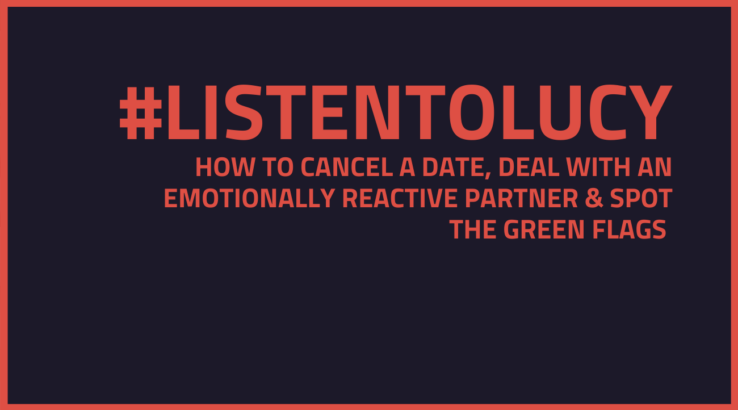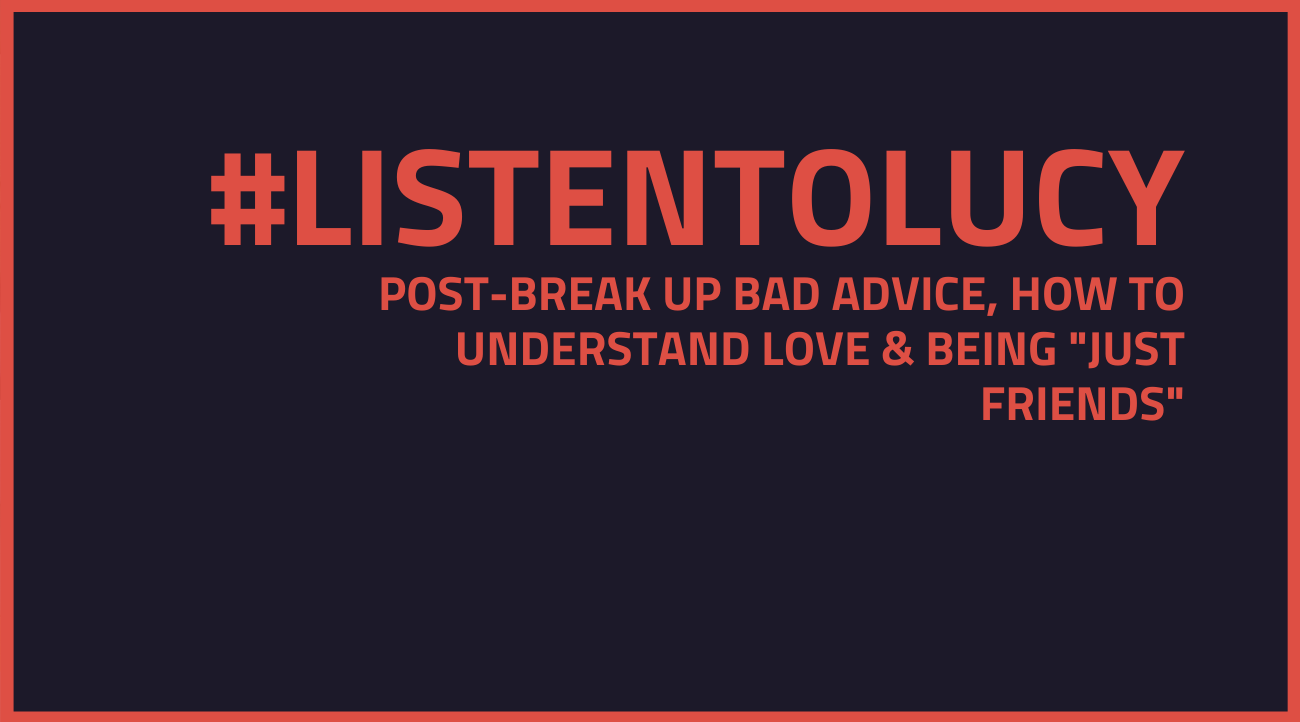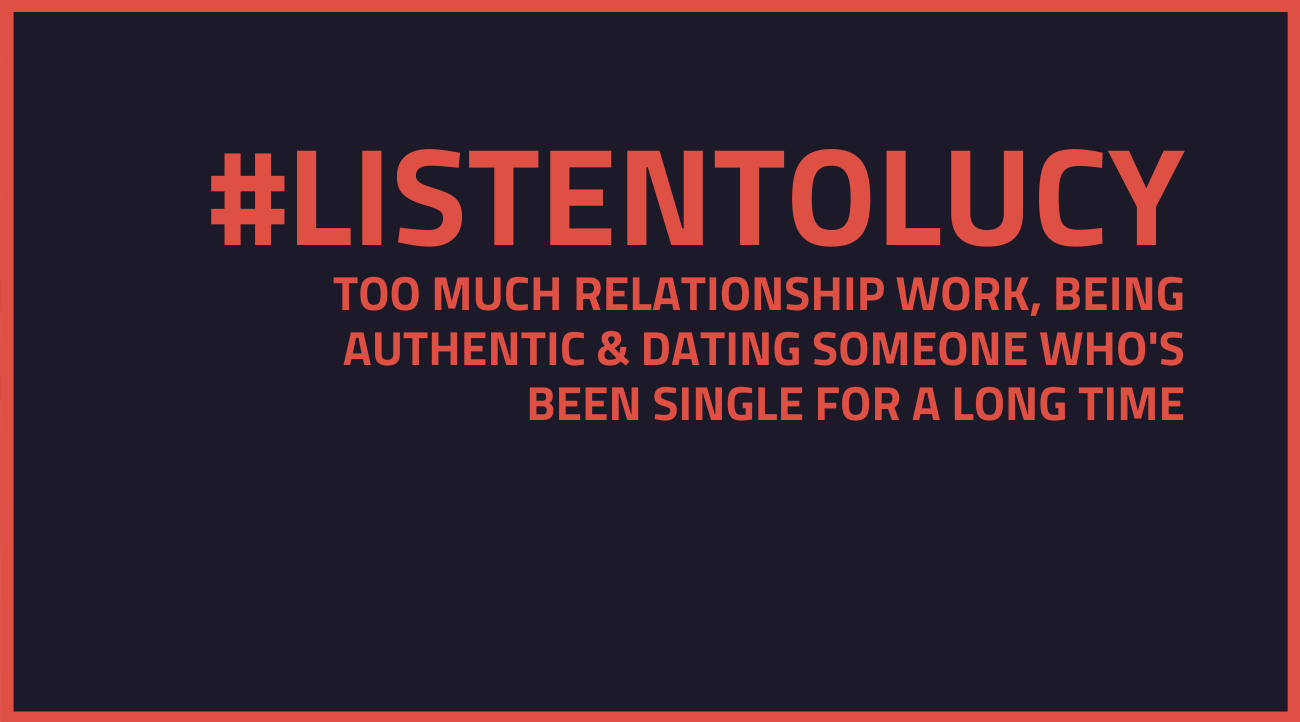
Ask Lucy – How to Cancel a Date, Deal with an Emotionally Reactive Partner & Spot the Green Flags
Our resident dating expert Lucy Jones is tackling some of Toyboy Warehouse’s top relationship questions. Enlighten your dating experiences with Lucy’s unique take on everything from love, lust to romance.
How to Cancel a Date the Right Way
When cancelling a date, it’s nice to be apologetic, genuine and truthful but it’s important to be firm. Being cancelled on is hard enough, however receiving an indecisive, wishy washy cancellation text is even worse.
If you’re thinking of cancelling, whether because you’re not totally into the person, or you may have other plans, make sure that that’s your final decision. If you’re unsure, make up your mind before telling the other person, not after.
Say you’ve sent someone the following text: ‘Hey, I don’t really think I can make this date, sorry, I’m not really sure’. This is far from the best way to cancel a date for a number of reasons:
- Them having to cancel their plans is a small inconvenience, not knowing if they can make new plans because you may change your mind is much worse and pretty annoying.
- As you’re clearly on the fence, that other person isn’t sure whether you want them to talk you into it. Even if you do, it’s not particularly fair to ask them to do that whilst cancelling on them.
- People appreciate honesty, if you’re not being honest to yourself about the reasons you want to cancel, it’s difficult to be honest with the other person.
Keep in mind, be firm and decisive. Try texting ‘Hey, I’m sorry for the short notice but I’m going to have to cancel tonight. For me, it’s not going to work out. I do wish you well’. There’s no room for miscommunication, the other person knows where they stand and you both can continue your lives with dignity.
How To Deal With An Emotionally Reactive Partner
An emotionally reactive person is someone who possesses the ability to control their emotions but chooses to ignore that power.
Within us we all have the lion and the lion tamer: the wild emotional side and the side that manages and calms those emotions. Emotionally reactive people choose to react exclusively as a lion and only bring in the lion tamer once those emotions have settled, usually after the negative consequences have occurred.
Dealing with an emotionally reactive person is difficult, most of the solutions require a personal acceptance and desire to fix the problem. You can’t fix the problem for someone else, it must be something they choose to do themselves.
With that being said, there are things you can do to help them on that journey.
Break away
Offer the opportunity to break away from the stressor. Whatever has triggered your partner’s emotional reaction, encourage them to leave with situation and return with a calmer mindset.
An emotionally reactive person struggles to deal with high pressure, difficult situations. By leaving, taking time to let the emotions fade and returning to solve the issue calmly, an emotionally reactive person can learn to overcome problems that they previously could not.
Set boundaries
It’s important to remember much of how an emotionally reactive person acts is natural. Despite our best intentions, we all are, on occasion, overcome by some kind of emotion. The problem is that for an emotionally reactive person this is more common, they are less able to stop themselves and the negative consequences that occur.
To deal with an emotionally reactive person, it’s good to understand this but also set boundaries so that they deal with stressful situations as healthily as possible.
How does your partner react? Is it with aggression towards people or objects? Do they disappear without any word? Do they become nasty or spiteful?
Identify the things that they do that crosses your red lines. Let them know they are free to react, but must do so without relying on those negative behaviours. Explain you’re there to help however you can, but if they cross those red lines then you’re not able to. Explain it is those behaviours that are threatening your relationship.
For a partner who is trying to improve, it will force them to deal with their emotions in other ways, not resorting to those behaviours that are putting a strain on your relationship.
While not an easy task, it’s the first step on improving their mindset. Without it, your relationship may struggle to continue.
What are the green flags you should look for in a new potential romantic partner?
How he/she treats people “under” them
When dating, you put your best self forward. We’re trying to impress the other person so while we want to be ourselves, we also want to be as funny or interesting or kind as we can be.
A person’s genuine moments can be seen when they are interacting with someone who they’re not trying to impress. How do they act towards a waiter or a taxi driver or a homeless person? Do they exhibit the same personality as they do when they’re interacting with you. If so, that’s a big green flag.
It shows this positive personality you’re seeing isn’t just a front, it’s who they really are. They’re not being nice to you just to get something, they’re being nice to you because they’re a nice person.
How people act when there’s nothing to gain can be a window into a person’s true self.
If they’re there for the bad times, not just the good
Enjoying someone’s company on a shared fun experience is great, it helps create a bond and strengthens a relationship. However, how you feel during a shared negative experience can be an even better way to see if this person is right for you.
There will be times during your relationship when things become difficult, when you lose a loved one or have to go through a medical emergency. During these times, does having this other person here help or hinder you getting over the issue?
Do they go out of their way to take care of you when you’re ill? Do they make themselves available to talk whenever things get difficult?
Most importantly, do they do all this without asking or complaining? Do they do it because it’s part of being in a relationship, it’s not necessary for you to return the favour?
Making you happy during the good times is one thing, successfully making you happy during the difficult times is a green flag worth keeping.





Comments